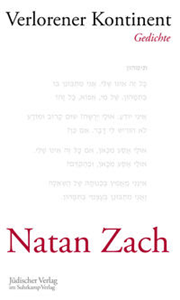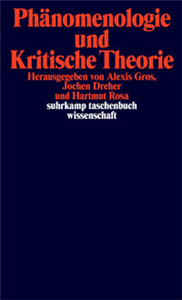Your Search Results
-
Promoted Content
-
Promoted ContentOctober 2006
Die Verschwulung der Welt
Rede gegen Rede. Beirut – Berlin
by Rashid al-Daif, Joachim Helfer, Günther Orth, Joachim Sartorius
Zwei Männer auf einem Diwan: Das Austauschprogramm »West-östlicher Diwan« bringt Schriftsteller aus Deutschland und der arabischen Welt paarweise zusammen, um durch ihr Kennenlernen dem vielbeschworenen ›Kampf der Kulturen‹ entgegenzuwirken. Joachim Helfer und Rashid al-Daif haben die Aufforderung zum Gespräch ernstgenommen. So entstand ein verblüffendes Buch: Der libanesische Autor schreibt ein Protokoll, dessen Gegenstand sein deutscher Kollege ist – und zwar als Privatperson. Er kommentiert dessen gleichgeschlechtliche Lebensweise, beschreibt Ansichten zu Sexualität, Liebe und Moral, die ihm fremd sind. Der deutsche Autor reagiert darauf mit radikaler Offenheit, schildert die Begegnung aus seiner Sicht und zeigt am Text des libanesischen Kollegen dessen eigene, zwischen Tradition und Moderne hin und her gerissenen Vorstellungen von Männer- und Frauenrollen auf. Am Ende macht der auf beiden Seiten mit dem Mut zur Selbstentblößung geführte Dialog erschreckend deutlich, wie sehr im Verhältnis zwischen Orient und Okzident das Private das Politische ist.
-
 Trusted Partner
September 2008
Trusted Partner
September 2008Abu Musas Nachbarinnen
Roman
by Ahmed Toufiq, Imke Ahlf-Wien
Hoch über dem Meer in Salé an Marokkos Atlantikküste (neben Rabat) ist noch heute das Grabmal des Sufi-Heiligen Abu Musa zu besichtigen. Abu Musa, ein Asket, und die schöne blonde Schama, die am Hof des Sultans in Fes gelebt hat und mit einem andalusischen Kunsthandwerker verheiratet ist, wohnen in einem heruntergekommenen Handelshaus in der bedeutenden Hafenstadt Salé. Eine Reihe alleinstehender Frauen von zweifelhaftem Ruf hat dort ebenfalls Unterkunft gefunden. Wann? Im 14. Jahrhundert. Abu Musas Nachbarinnen ist ein historischer Roman, erzählt in arabischer Tradition, lebendig, farbig und kenntnisreich, mit überraschenden Wendungen unterwegs und einem Regenwunder zum Schluß, das Abu Musa, unterstützt von Schama und den Frauen, herbeiführt – wofür er bezahlen muß. Ahmed Toufiqs Roman fragt, mitten im Getümmel: Wie sollen wir leben und: was können wir tun? Seine Antwort, muslimisch und menschlich, klingt nach.
-
 Trusted Partner
Trusted Partner
-
 Trusted Partner
April 2013
Trusted Partner
April 2013Verlorener Kontinent
Gedichte
by Natan Zach, Ehud Alexander Avner
Natan Zach wurde am 13. Dezember 1930 als Harry Seitelbach in Berlin geboren. Seine Mutter war Italienerin, der Vater ein deutscher Jude. 1936 wanderte die Familie nach Haifa im damaligen britischen Mandatsgebiet Palästina aus. Ende der 1940er Jahre nahm Harry Seitelbach den Namen Zach (hebr. rein, lauter) an. Er nahm 1948 am israelisch-arabischen Krieg teil. Zach studierte bei Martin Buber und Gershom Scholem und gehörte seit 1952 der literarisch einflussreichen Gruppe Likrat (hebr. entgegen) an. Mit seinem ersten Gedichtband (1955) wurde Zach zu einem Protagonisten der israelischen Moderne. Der nüchterne, oft ironische, immer musikalische Ton seiner Poesie verbindet die gesprochene Sprache mit dem biblischen und rabbinischen Hebräisch. In den politischen Auseinandersetzungen des Landes ist seine Stimme unüberhörbar. 1967 übersetzte er zusammen mit dem palästinensischen Dichter Rashid Hussein arabische Volkslieder. Mit dem Band »Verlorener Kontinent« erscheint sein Werk erstmals in einer Auswahl auf Deutsch.
-
 Trusted Partner
April 2013
Trusted Partner
April 2013Verlorener Kontinent
Gedichte
by Natan Zach
Natan Zach wurde am 13. Dezember 1930 als Harry Seitelbach in Berlin geboren. Seine Mutter war Italienerin, der Vater ein deutscher Jude. 1936 wanderte die Familie nach Haifa im damaligen britischen Mandatsgebiet Palästina aus. Ende der 1940er Jahre nahm Harry Seitelbach den Namen Zach (hebr. rein, lauter) an. Er nahm 1948 am israelisch-arabischen Krieg teil. Zach studierte bei Martin Buber und Gershom Scholem und gehörte seit 1952 der literarisch einflussreichen Gruppe Likrat (hebr. entgegen) an. Mit seinem ersten Gedichtband (1955) wurde Zach zu einem Protagonisten der israelischen Moderne. Der nüchterne, oft ironische, immer musikalische Ton seiner Poesie verbindet die gesprochene Sprache mit dem biblischen und rabbinischen Hebräisch. In den politischen Auseinandersetzungen des Landes ist seine Stimme unüberhörbar. 1967 übersetzte er zusammen mit dem palästinensischen Dichter Rashid Hussein arabische Volkslieder. Mit dem Band »Verlorener Kontinent« erscheint sein Werk erstmals in einer Auswahl auf Deutsch.
-
 Trusted Partner
January 2026
Trusted Partner
January 2026Phänomenologie und Kritische Theorie
by Alexis Gros, Jochen Dreher, Hartmut Rosa
Phänomenologie und Kritische Theorie sind zwei der einflussreichsten Denkströmungen der Gegenwart sowohl in der Philosophie als auch in der Soziologie. Zwischen beiden Traditionslinien besteht einerseits ein Spannungsverhältnis, das von Anfang an von Vorurteilen und Missverständnissen geprägt war. Andererseits gab es immer schon theoretische Affinitäten, und aktuelle Entwicklungen deuten auf eine produktive Annäherung hin. Mit dem Ziel, den konstruktiven Dialog zu vertiefen, versammelt dieser Band sowohl systematisch als auch theoriegeschichtlich orientierte Texte von einschlägigen Forscher:innen beider Traditionslinien, darunter Sara Ahmed, Lisa Guenther, Charles Taylor, Gail Weiss, George Yancy und Dan Zahavi.
-
 Trusted Partner
Trusted Partner
-
 Trusted Partner
Trusted Partner
-
 Trusted Partner
November 1957
Trusted Partner
November 1957Die Industrialisierung der wirtschaftlich unterentwickelten afrikanischen Länder und ihre Auswirkungen auf die Weltwirtschaft.
Ein Beitrag zur Lösung des Problems der wirtschaftlichen Unterentwicklung im Rahmen einer horizontalen internationalen Arbeitsteilung.
by Muddathir, Ahmed
-
 Trusted Partner
1988
Trusted Partner
1988Questions Grammaticales de A à Z
Tout ce que vous avez toujours voulu savoir sur la grammaire sans jamais oser le demander. (Sprachbücher)
by Haddedou, Ahmed
-
 Trusted Partner
July 2009
Trusted Partner
July 2009In der Wüste findet nur der Kluge den Weg
Gedichte. Edition Lyrik Kabinett
by Al Maktoum, Mohamed bin Rashid
-
 Trusted Partner
Trusted Partner
Strengths-Based Resilience
by Tayyab Rashid, Jane Gillham, Afroze Anjum
Informed by rigorous research from positive psychology, cognitive behavior therapy and mindfulness, the Strengths-Based Resilience (SBR) program helps participants cultivate resilience in the face of different adverse life phases, whether it is challenges in higher education, work, relationships, or more. The 14-module SBR program helps clients to build resilience through a series of evidence-based skills. Core modules focus on:• Integrating mindfulness, relaxation, and gratitude intodailyselfcare routines• Developing a personal story of resilience• Learning a more flexible thinking style• Identifying and using strengths to solve problems• Incorporating slowness and savoring• Practicing positive communication for healthierrelationships• Contributing to community by learning to act altruistically• Pursuing a sense of meaning by exploring past and futureselves This color-illustrated manual is clearly structured, providing step-by step instructions, and listing the practice elements and goals of each module. It is an essential resource for all mental health practitioners wanting to help their clients build resilience. For:• psychotherapists• clinical psychologists
-
 Trusted Partner
Humanities & Social Sciences
Trusted Partner
Humanities & Social SciencesStrengths-Based Resilience Workbook
by Tayyab Rashid, Jane Gillham, Ruth Louden, Afroze Anjum
Learn how to develop and to use your strengths to build resilience: • A tried and tested 14-module positive psychology program• Learn skills you can integrate into daily life• Clearly structured• Full of resources and activities Do you want to learn skills that focus on strengths that will help you become more resilient? And be able to integrate these skills into your daily life? Then this 14 module strengthsbased resilience program will help you do just that with an approach that has been proven to work. You will learn how to: • Integrate mindfulness, relaxation, and gratitude intoyour daily self-care routine• Explore your own story of resilience• Learn to be more flexible in your thinking• Identify and use strengths to solve problems• Incorporate slowness and savoring• Practice positive communication for healthier relationships• Contribute to community by learning to do the good you can• Find a sense of meaning by exploring your past andfuture self Each module is clearly structured with step-by-step instructions, listing the practice elements and goals for each session. The book is full of tips so you can start developing the skills now and make changes that will help you flourish in life. For:• psychotherapists• clinical psychologists
-
 Trusted Partner
Trusted Partner
-
 Trusted Partner
Trusted Partner
-
 Trusted Partner
Literature & Literary StudiesNovember 2007
Trusted Partner
Literature & Literary StudiesNovember 2007Salman Rushdie
by Andrew Teverson, John Thieme, Rebecca Mortimer
-
 Trusted Partner
Trusted Partner
-
 Trusted Partner
Trusted Partner
-
 Trusted Partner
Literature & Literary StudiesJuly 2003
Trusted Partner
Literature & Literary StudiesJuly 2003Dwelling places
Postwar Black British Writing
by James Procter
Explores some of the key venues of black British literary and cultural production across the postwar period: bedsits and basements; streets and cafes; train stations and tourist landscapes; the suburbs and the city; the north and south. Pursues a 'devolving' landscape in order to consider what an analysis of 'dwelling' might contribute to the travelling theories of diaspora discourse and asks what happens when we 'situate' literatures of movement and migration. Offers fresh readings of work by some of the key literary figures of the postwar years, for example, Salman Rushdie, Hanif Kureishi, Meera Syal, Linton Kwesi Johnson. Contextualises writings alongside photography, painting, and film to consider their relationship to broader shifts in the politics of black representation over the past fifty years. Offers sustained anaysis of many of the texts reproduced in Procter's anthology Writing black Britain 1948-98 ( MUP, 2000) making an ideal companion to the earlier book. ;





























